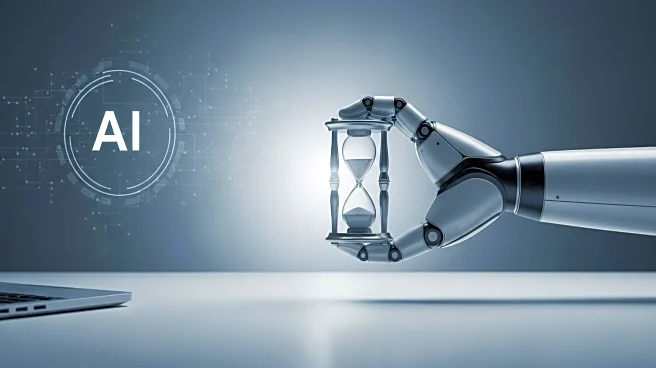What is the story about?
What's Happening?
A new study from Yale University reveals that AI has had minimal impact on the U.S. job market, contrary to widespread predictions of job losses due to AI technologies like ChatGPT. The study analyzed job data over 33 months since ChatGPT's release, comparing workers' exposure to AI and the rate of change in the labor market. The findings suggest stability rather than disruption, with AI's impact comparable to historical technological shifts like the introduction of computers and the internet. The study challenges claims by tech leaders predicting massive job upheaval.
Why It's Important?
The study's findings provide reassurance to workers concerned about AI-induced job losses, suggesting that AI's impact on employment may be overstated. This could influence public perception and policy discussions around AI adoption and workforce planning. The stability in the job market may encourage businesses to integrate AI technologies without fear of significant workforce disruption. Additionally, the study highlights the need for careful analysis of AI's real-world effects, informing future research and policy decisions.
What's Next?
The study suggests that while AI may eventually become a transformative technology, its current impact on jobs is limited. Future research will likely focus on monitoring AI's long-term effects on employment and economic structures. Policymakers and industry leaders may use these insights to guide AI integration strategies, balancing innovation with workforce stability. As AI technologies continue to evolve, ongoing analysis will be crucial to understanding their implications for various sectors and demographics.
Beyond the Headlines
The study raises questions about the narratives surrounding AI and job displacement, suggesting that media coverage may exaggerate AI's immediate impact. This highlights the importance of evidence-based analysis in shaping public discourse and policy. Additionally, the findings may influence educational and training programs, as institutions prepare workers for an AI-integrated future. Understanding AI's nuanced effects on employment could lead to more targeted strategies for workforce development and economic resilience.















